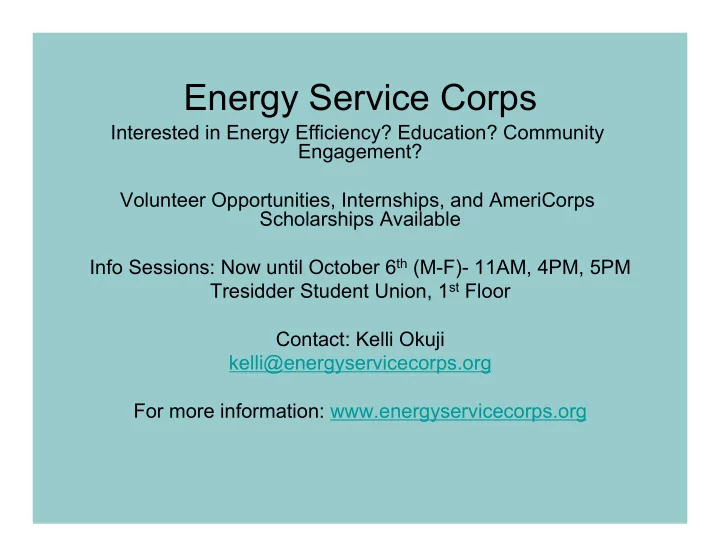

Energy Service Corps Interested in Energy Efficiency? Education? Community Engagement? Volunteer Opportunities, Internships, and AmeriCorps Scholarships Available Info Sessions: Now until October 6 th (M-F)- 11AM, 4PM, 5PM Tresidder Student Union, 1 st Floor Contact: Kelli Okuji kelli@energyservicecorps.org For more information: www.energyservicecorps.org
Books? • Bookstore has 2 copies in stock for $49.95 • You can get it from Amazon for $36.99 • Need to poll how many want books ordered from the bookstore (they will arrive Friday or Monday)
[fn ̩ɛɾɪ ks]
Download Praat now http://www.fon.hum.uva.nl/praat/
We can study the sounds of language from the perspective of: • production (articulatory phonetics • the physical result (acoustic phonetics) • reception and interpretation (auditory phonetics)
Today: [K ɑ ns əӚ n əӚ ntsn ̩ vælz] • Basic articulatory phonetics – How does the vocal tract work? – What kinds of sounds do languages use and how are they made? • The use of phonetic symbols – What can you do with a phonetic alphabet? – How do you do phonetic transcription?
Speech sounds are distinguished by: voicing place of articulation manner of articulation
The vocal tract AIR
The vocal folds Open Phonation Closed (e.g. lifting (breathing in) a heavy load) [s] voiceless [z] voiced http://www.phon.ox.ac.uk/~jcoleman/cords.MOV
Noise and resonance Air allowed to pass through an unobstructed space will resonate. Air passing through a constricted area will create turbulence. Air blocked behind a full obstruction and then released will create an explosion.
Resonants • Vowels [i], [u], [æ], [ ʌ ] … • Nasals [m], [n], [ ƞ ] … • Liquids [ ɺ ], [l], [ ʎ ] … • Glides [w], [j] …
Obstruents (noise) Stops [p], [t], [k] … Fricatives [f], [s], [ ʃ ] … A fg ricates [t ʃ ], [d ʒ ] …
Points of articulation
Manner of articulation Alveolars stop t nasal n trill r flap fricative s lat. fricative ts affricate approximant lat. approx. l http://www.chass.utoronto.ca/~danhall/phonetics/sammy.html
Manner of articulation stop t nasal n trill r flap fricative s lat. fricative ts affricate approximant lat. approx. l http://www.chass.utoronto.ca/~danhall/phonetics/sammy.html
Manner of articulation stop t nasal n trill r flap fricative s lat. fricative ts affricate approximant lat. approx. l
Voicing voiceless voiced stop t d n n nasal r trill r flap fricative s z lat. fricative approximant lat. approx. l l
[vælz] • Vowels are produced with no obstruction in the vocal tract. • Vowel quality is determined by the resonating cavities created above all by the configuration of the tongue and lips
[væw ə lz] • Vowels are categorized according to: – Height – Frontness/backness – Lip rounding
front mid back The vowel ‘triangle’ high mid low Where symbols are in pairs, the one on the right is rounded naming convention: height + front-back + rounding e.g. [y] is a high front rounded vowel
sm ̩ʌðɚ k ɑ ns əӚ n əӚ nts • clicks • ejectives • implosives • … peruse: http://hctv.humnet.ucla.edu/departments/linguistics/VowelsandConsonants/
Recommend
More recommend